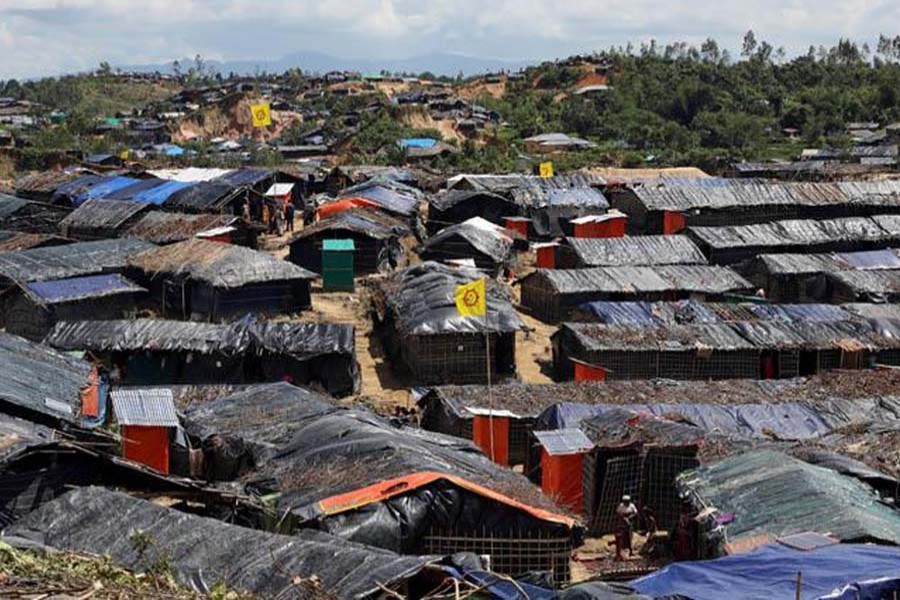Civil society members have urged for allowing Rohingya to engage in productive work in Cox’s Bazar camps apart from preparing a collective plan to cope with the cut in foreign aid for the refugees.
They, at a webinar, also urged for regeneration of nature in the camp, especially banning the use of plastic as well as the use of groundwater.
Speakers made the call at the webinar organised by Cox's Bazar Civil Society and NGO Forum (CCNF), a network of 60 local organisations, titled ‘Humanitarian Response to Forcefully Displaced Myanmar Nationals (FDMN)’ on Wednesday.
Shireen Huq of Naripokka chaired the event while KM Tariqul Islam Director-General NGO Affairs Bureau was the chief guest.
Johannes van der Klaauw, Country Representative UNHCR, Abdusattar Eosev, Country Representative of IOM, Sheila Gurdum of WFP Cox's Bazar office chief, Dilruba Haider from UN Women, Jahangir Kabir Chowdury, Chairman, Rajapalong Union of Ukhiya has participated as Guests.
Refugee Relief and Repatriation Additional Commissioner (RRRC) Md Shamsuddoha and Additional Deputy Commissioner Nashim also spoke on the occasion.
KM Tariqul Islam said that the aid for Rohinga response is being declined due to the ongoing global crisis. So, the government and donors should work to find pragmatic ways to attract global donors.
Arifur Rahman of YPSA gave the keynote presentation, where the key demands were transparency of aid spending, monitoring, and technical assistance, while local and national NGOs lead the field operation.
Shireen Huq urged the government to announce a plan and intensify the global campaign on repatriation.
Nayeem Gowhar Warha also urged the government to consider signing the Geneva Convention on Refugees, as the nation was a refugee in 1971, and now the country is facilitating Rohingya refugees.
Ashis Damle of Oxfam requests INGOs to initiate a global campaign so that there will be early repatriation.
Dilruba Haider of UN Women said that Rohingya women in the camp now want to participate in the response management, they organise themselves against violence against women.
Asif Munier said there should be documentation of good work and its process, especially to facilitate knowledge transfer to the local humanitarian workers.


